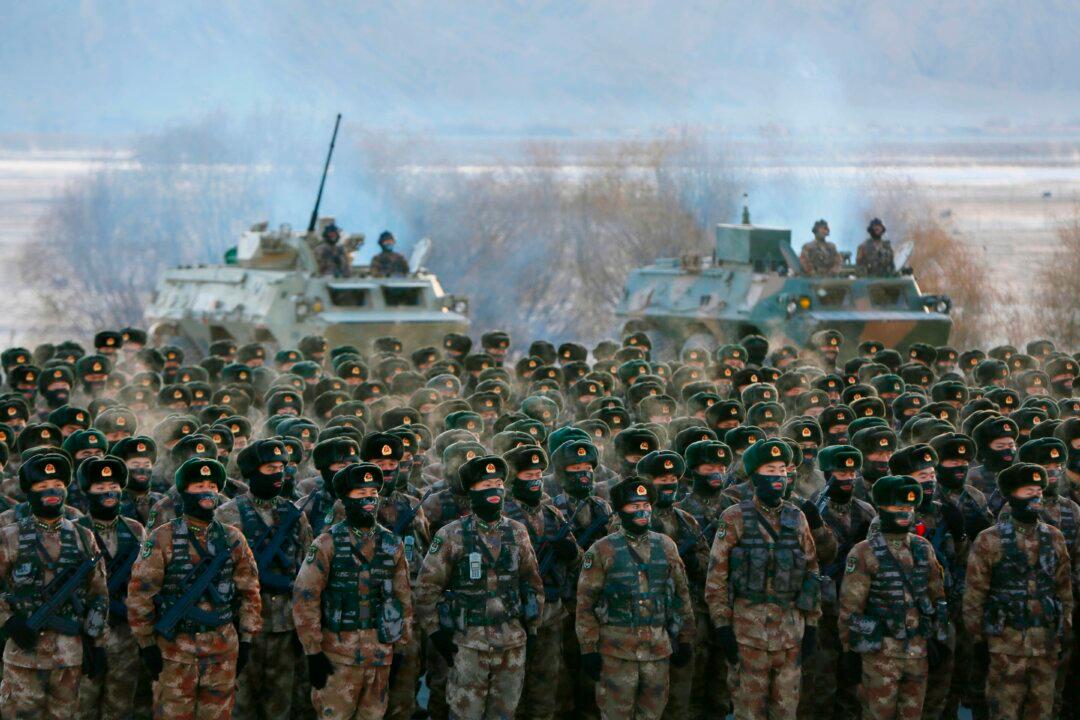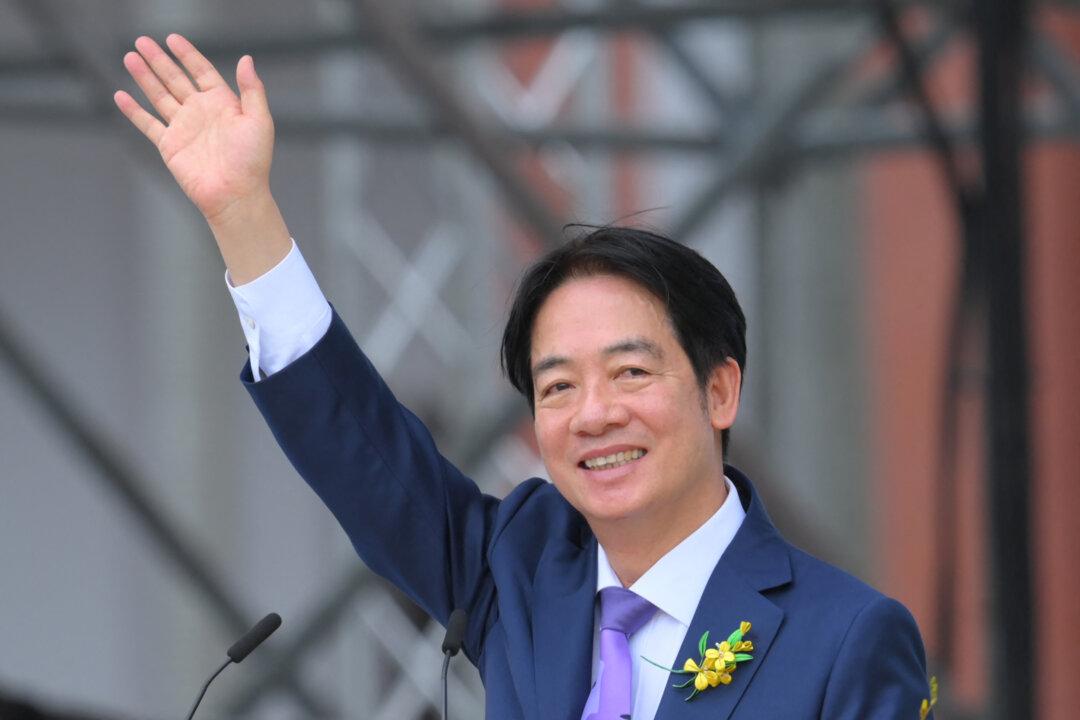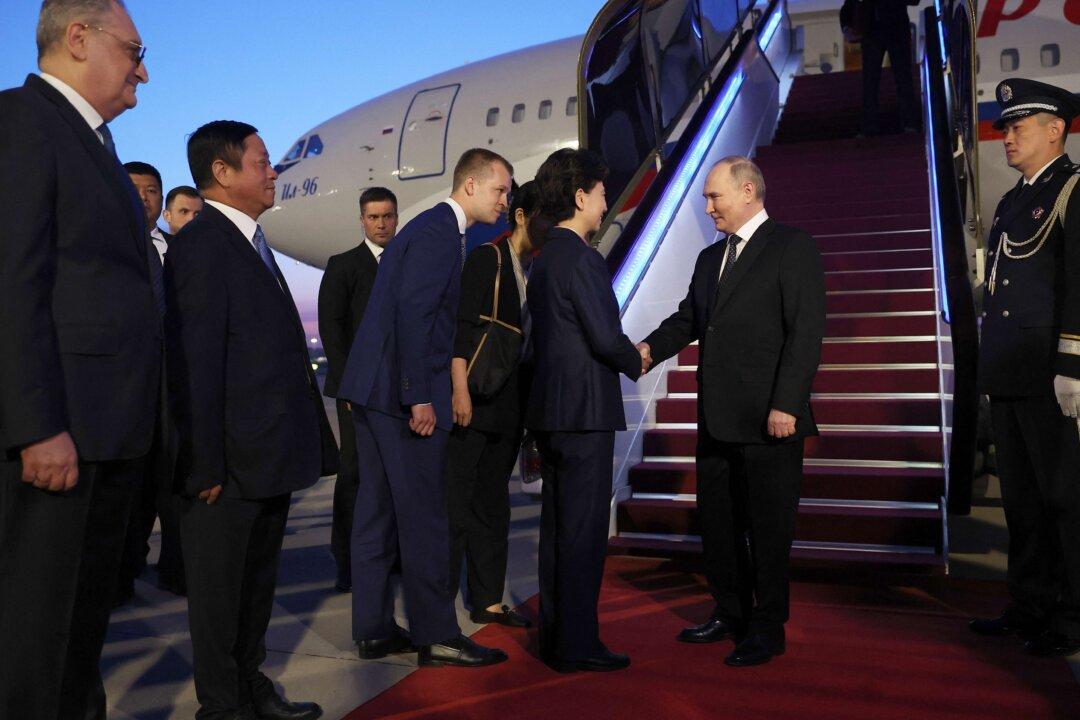The leaked memorandum from U.S. Air Force Gen. Mike Minihan, the commander of the Air Mobility Command (AMC), to his officers is a significant development.
Minihan opined that, while he hoped he was wrong, the United States will be at war with China by 2025. This is because Chinese leader Xi Jinping achieved his third term at the Chinese Communist Party’s (CCP’s) 20th Congress in October and created his war council in 2022, while Taiwan’s presidential election in 2024 will provide the immediate reason, and the United States is distracted in its own presidential campaign season.
For Minihan, Xi’s team, reason, and opportunity are aligned for conflict in 2025. Minihan also warned his AMC airmen to accept greater risks in training for the China fight, understand that military lethality matters most, and have their legal affairs in order.
There are three reasons why this memorandum is important.
First, it echoes what other senior officers have stated. In March 2021, Adm. Philip Davidson, then-commander of the U.S. Indo-Pacific Command, stated that China would attack Taiwan before 2027. In October 2022, Chief of Naval Operations Adm. Michael Gilday warned that rather than a 2027 window for Chinese aggression, it may come in a 2023 window. The former commander of the U.S. Strategic Command, Adm. Charles Richard, warned many times against the impending threat from the Chinese regime. Minihan’s opinion dovetails with some of the senior military leaders who’ve expressed publicly their opinion that aggression might come in the near term, which is eminently reasonable given Xi’s ambitions.
Second, Minihan’s remarks suggest that the United States will fight to defeat Chinese aggression against Taiwan were it to occur. That’s a positive development for deterrence against Chinese aggression. The stronger the United States’ deterrent capabilities, the more likely China will be deterred from an attack against a partner such as Taiwan or an ally such as Japan. AMC contributes to U.S. conventional deterrent capabilities by being able to sustain and reinforce U.S., allied, and partner militaries.
One might then reasonably expect that as commander of AMC, Minihan is preparing his command to support Indo-Pacific Command for likely contingencies for a Sino–American war over Taiwan. This might include ensuring that AMC could support an air bridge akin to Operation Nickel Grass in support of Israel in the 1973 war.
History has important lessons to remind AMC of the successes of the past, such as flying over “the Hump” to China, Operation Vittles, the Berlin Airlift, or fire support base resupply in Vietnam. Executing an air bridge to Taiwan, Okinawa, Guam, and other key facilities is difficult due to the supremely challenging surface-to-air missile threat the closer one gets to China. It’s also difficult because airfields will be damaged by Chinese attacks throughout the region. In addition, these attacks against airfields will hinder tanking and other aircraft that will support AMC’s fleet. There will be attrition against AMC’s fleet due to combat losses. The losses in the fleet will be difficult to replace, even drawing upon aircraft at the boneyard at Davis-Monthan, due to a weakened defense industrial base.

Third, the memorandum offers realism regarding the rapidity with which the United States may be at war with the Chinese regime. That’s a welcome assessment and in direct contrast to many senior military officers and Department of Defense civilian leaders who discounted the China threat year after year, and many of whom favored engagement with the Chinese military. They’re responsible for the worst case of threat deflation experienced by the U.S. military. The result of threat deflation is that now the threat is existential and can no longer be ignored or discounted. It falls to Minihan and others who are stating what should have been stated decades ago, and now they’re acting with alacrity and dispatch as they always should have acted.
Despite the fact that many predecessors in the military failed current commanders to prepare for a Sino–American war today or next week, one hopes that Minihan is preparing his fleet to be stressed far beyond what AMC has experienced in the post-Cold War period, and that these efforts are repeated for all commands.
A high-intensity war with China will tax U.S. conventional capabilities, and perhaps nuclear capabilities, far beyond what most serving officers have experienced in their careers. They will have to return to the lessons and hard experience of the Cold War, when some of today’s most senior officers were juniors at the start of their careers and rigorously trained for World War III against Warsaw Pact forces. If that intensity isn’t present, Minihan and senior military leaders have to recapture it.
The leaked memorandum’s appeal to greater risks in training is a necessary and welcome step, so long as the careers of officers who do train rigorously aren’t harmed by the inevitable consequences of realistic training. Minihan and all senior officers in the chain of command must have the backs of those conducting such training, and junior officers and non-commission officers must know this. Indeed, Minihan himself will have to be protected, as the China threat deflators are still present in the U.S. national security community. Leadership is defined in part by providing such protection.
Particularly, since the end of the Cold War, the United States hasn’t trained for high-intensity conflict in every domain—air, space, land, sea, cyber—against a peer enemy whose military effectiveness typically is dismissed or discounted by many in the national security community. At a minimum, war always brings nasty surprises for combatants, and no doubt the Sino–American one will, too, for both China and the United States. The intense training that Minihan calls for can reduce the impact of the inevitable surprise.
Minihan deserves great praise for his memorandum and its call to meet the threat right here and right now.





